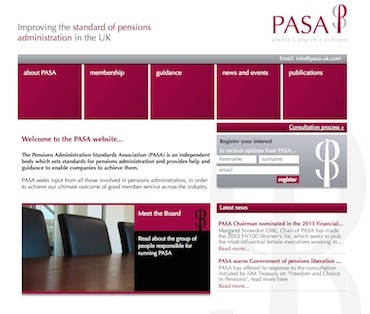The revolution in retirement income may inadvertently increase the risk of pension liberation, the Government has been warned.
The Pensions Administration Standards Association has urged the Government to be mindful of creating an "unintentional pensions liberation trap" by over-stretching administration resources.
The independent body, which aims to driving up standards in pensions administration, issued the warning in response to the consultation the Coalition has carried out on reforms to pensions.
Peter Dyer, chair of PASA's policy & strategy sub-committee, said: "We are concerned about the impact of the changes where they conflict with scheme rules, as well as the potential peak demand on administrators which may emerge from the changes at both interim and final legislative level - and the timeline which itself is extremely tight - and could produce a run in demand for transfer quotations and settlement during a compressed period.
"We are anxious that this does not drive less scrupulous pensions liberation operatives from stepping in to take advantage of any hiatus caused by the introduction of new regulations."
{desktop}{/desktop}{mobile}{/mobile}
Mr Dyer also warned that announcements in connection with the closure of the window for DB transfers would "prompt a run on requests for transfers" and increase demand on stretched resources.
He said: "Administrators may well struggle to satisfy this demand, or to meet disclosure requirements before the window closes, causing members to potentially miss out on a transfer and this may even lead to claims for compensation.
"A run on the administrator's ability to effect a measured response to member requests could possibly contribute to an increase in pension liberation activity, clearly an unsatisfactory outcome in light of current efforts to minimise this practice."
However, it generally welcomed the simplification in the area of Defined Contribution pensions and the ability of members to make choices at retirement, which "suit their needs and expectations".
PASA also highlighted concerns that:
o Limiting changes to DC schemes only would further extend the current two-tier environment and introduce additional, unnecessary complexity in the administration of schemes.
o The indicative timeline, for changes to be implemented for retirements from April 2015, will leave insufficient time for administrators to execute the change to systems, procedures and issue revised member documentation, including the new Guidance, four months in advance of April in order to meet the disclosure requirement, i.e. by the end of November

